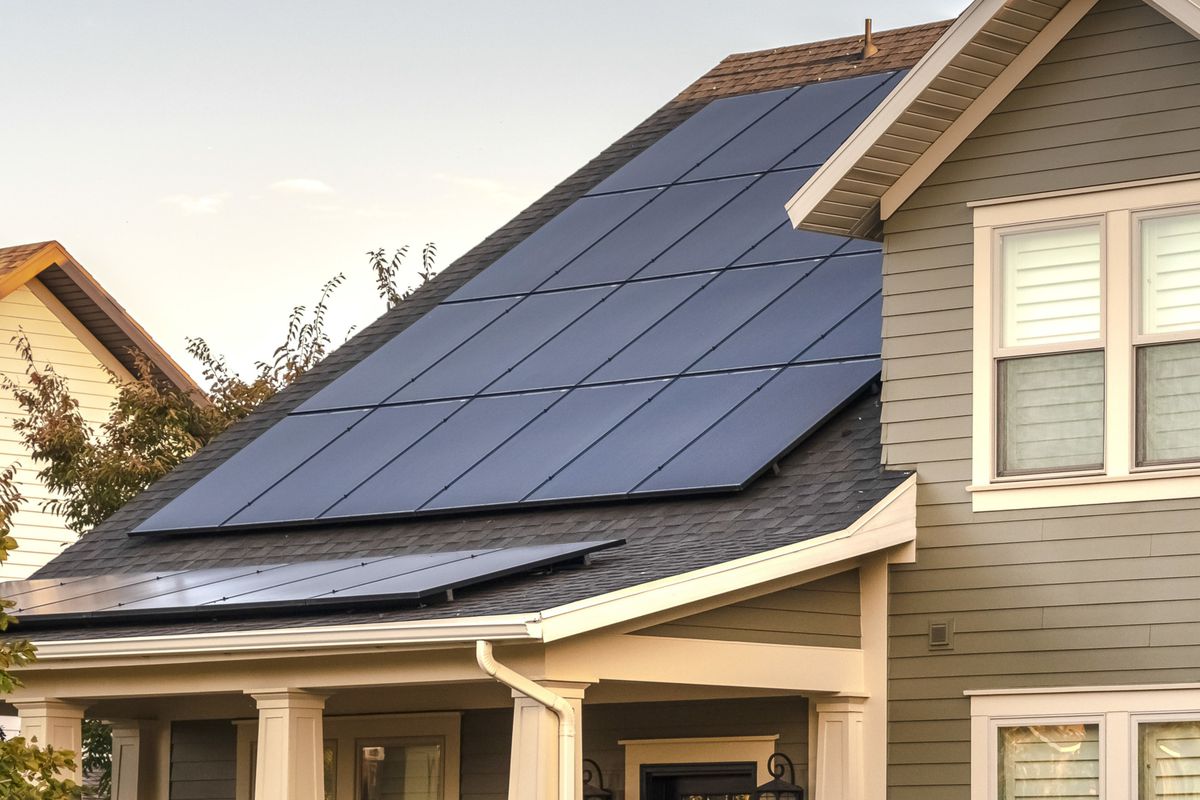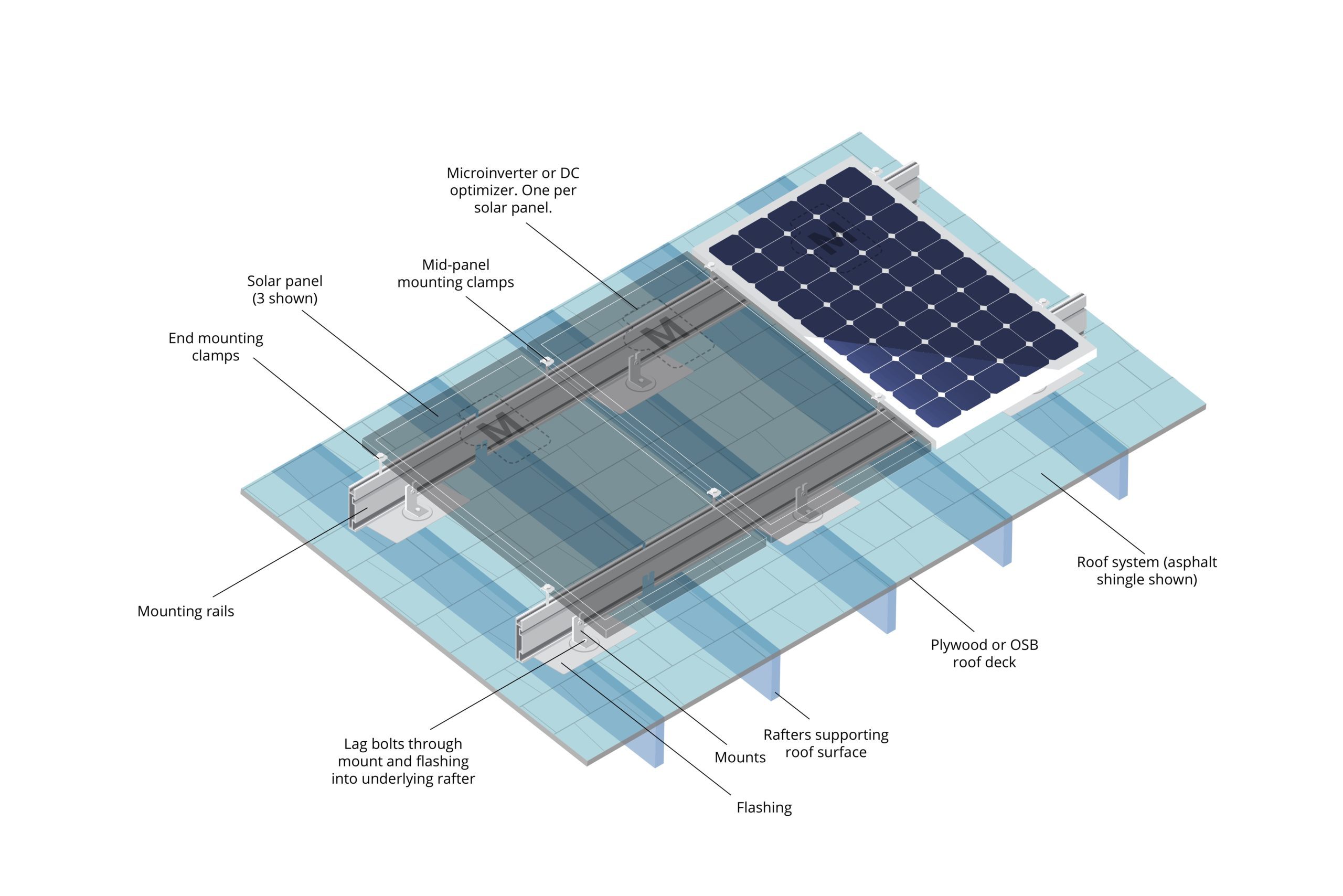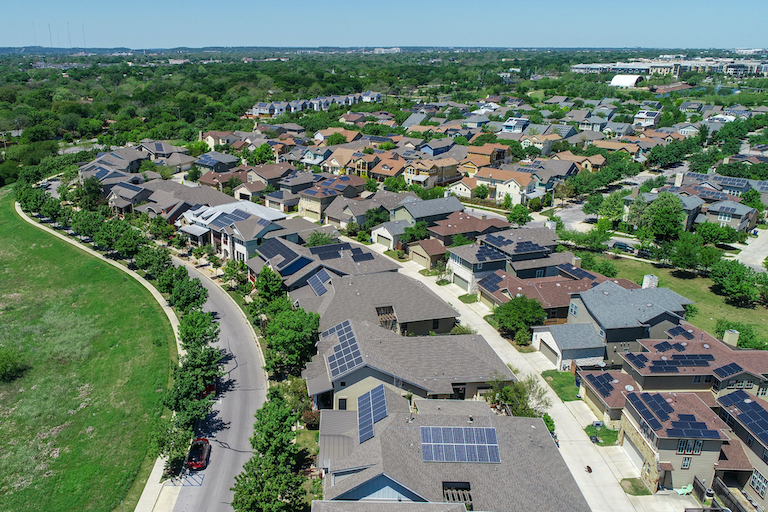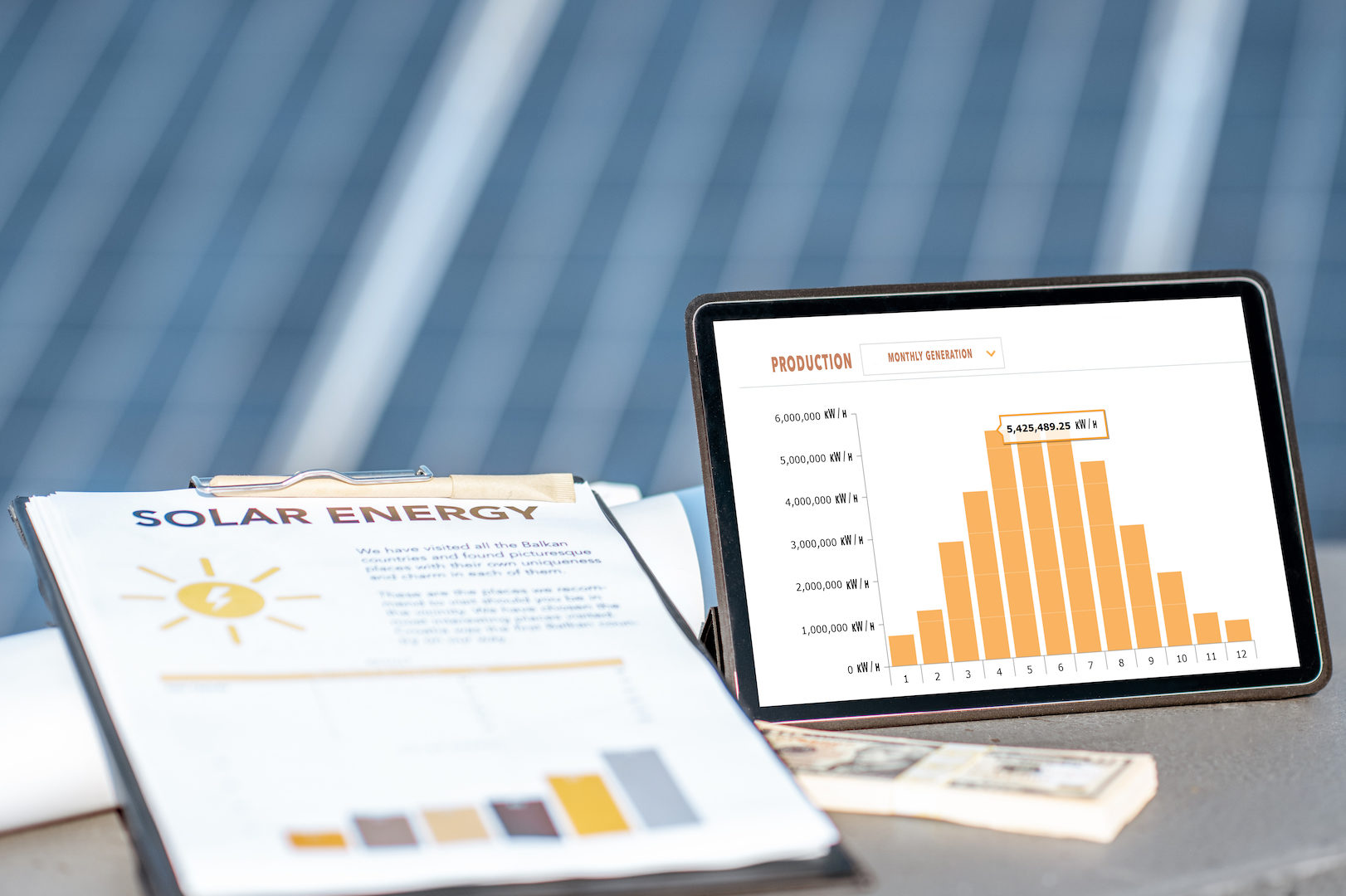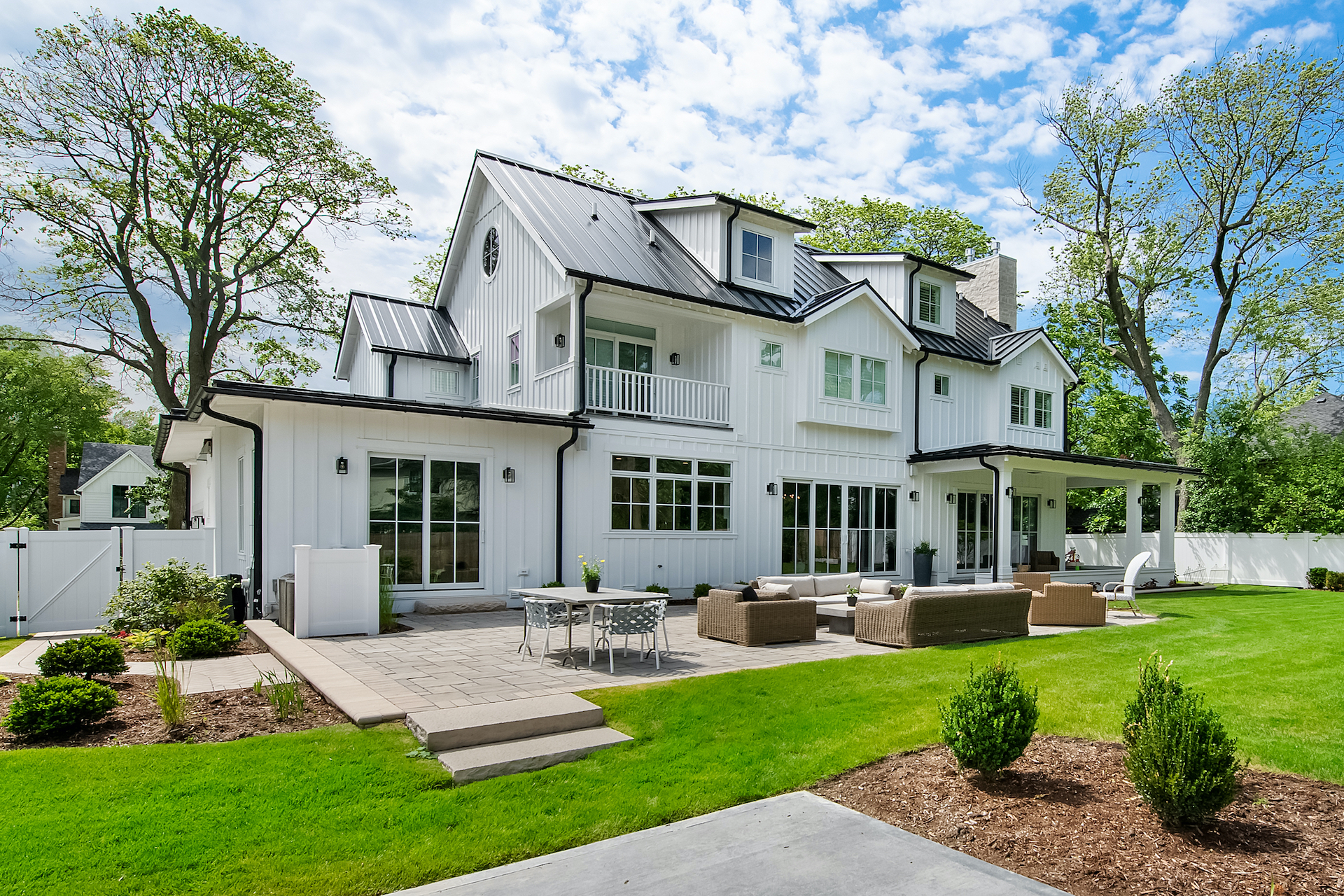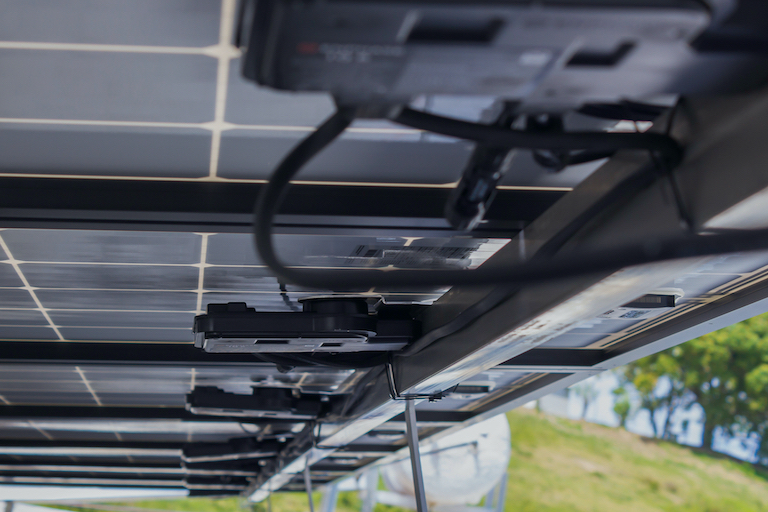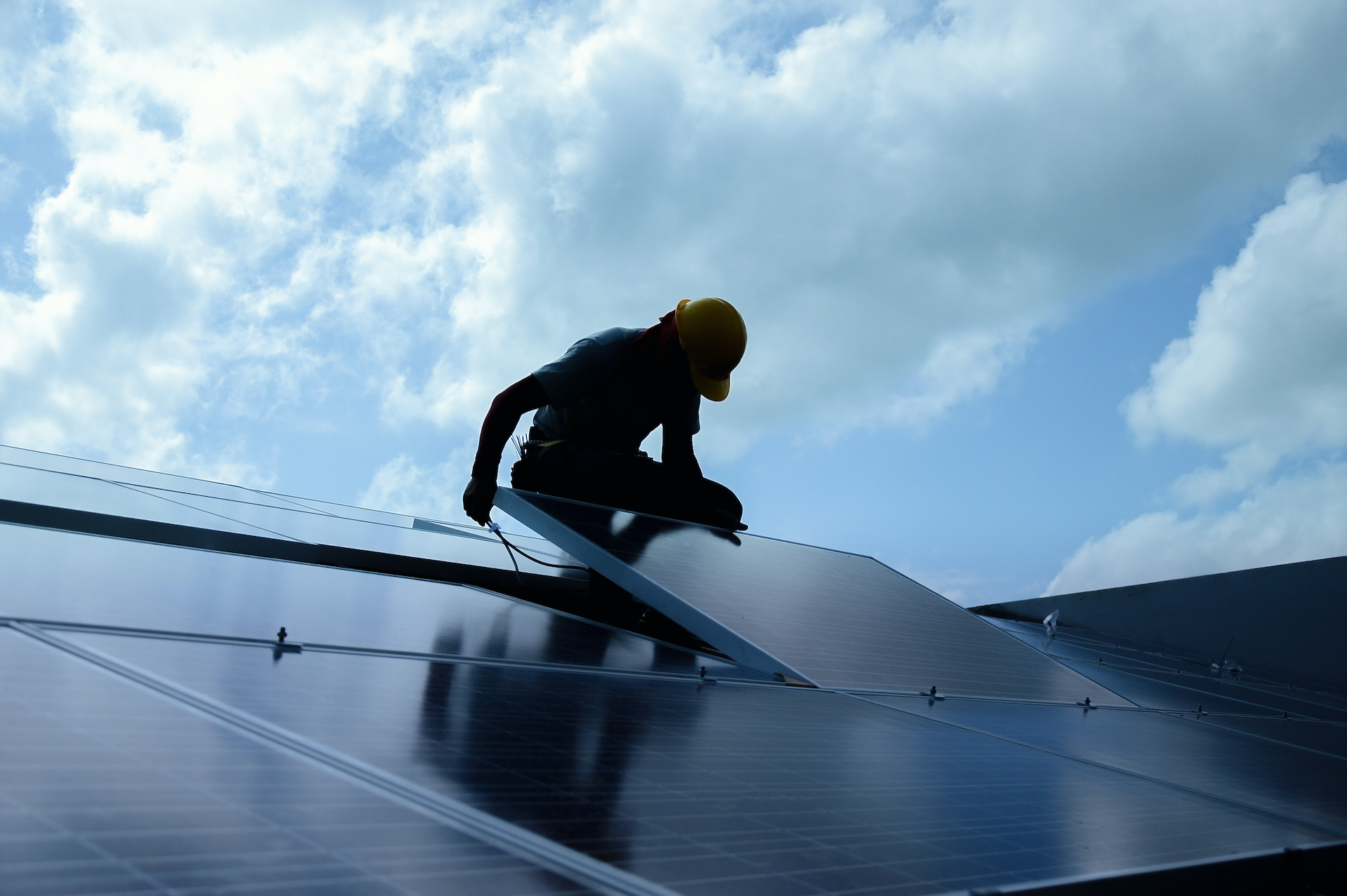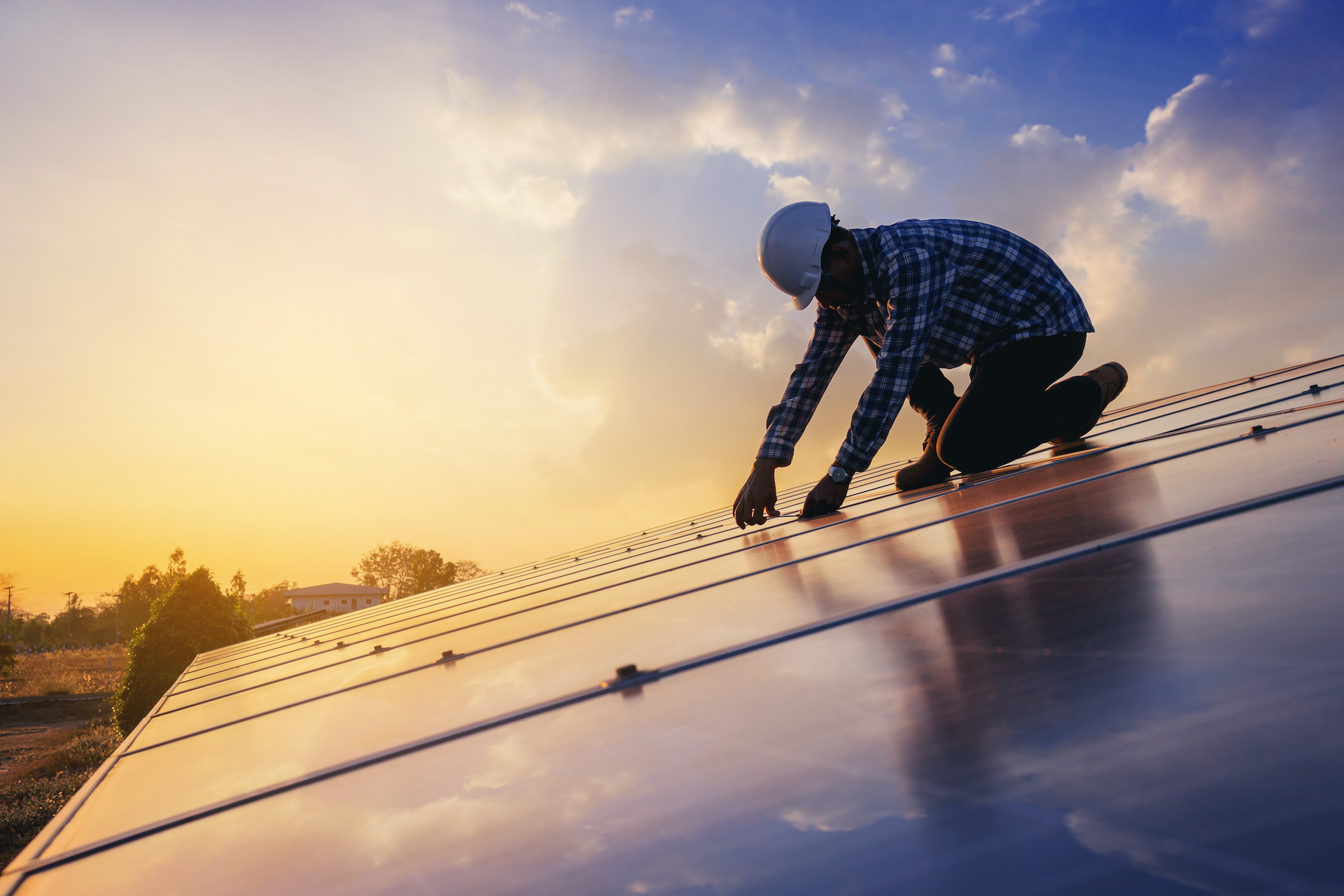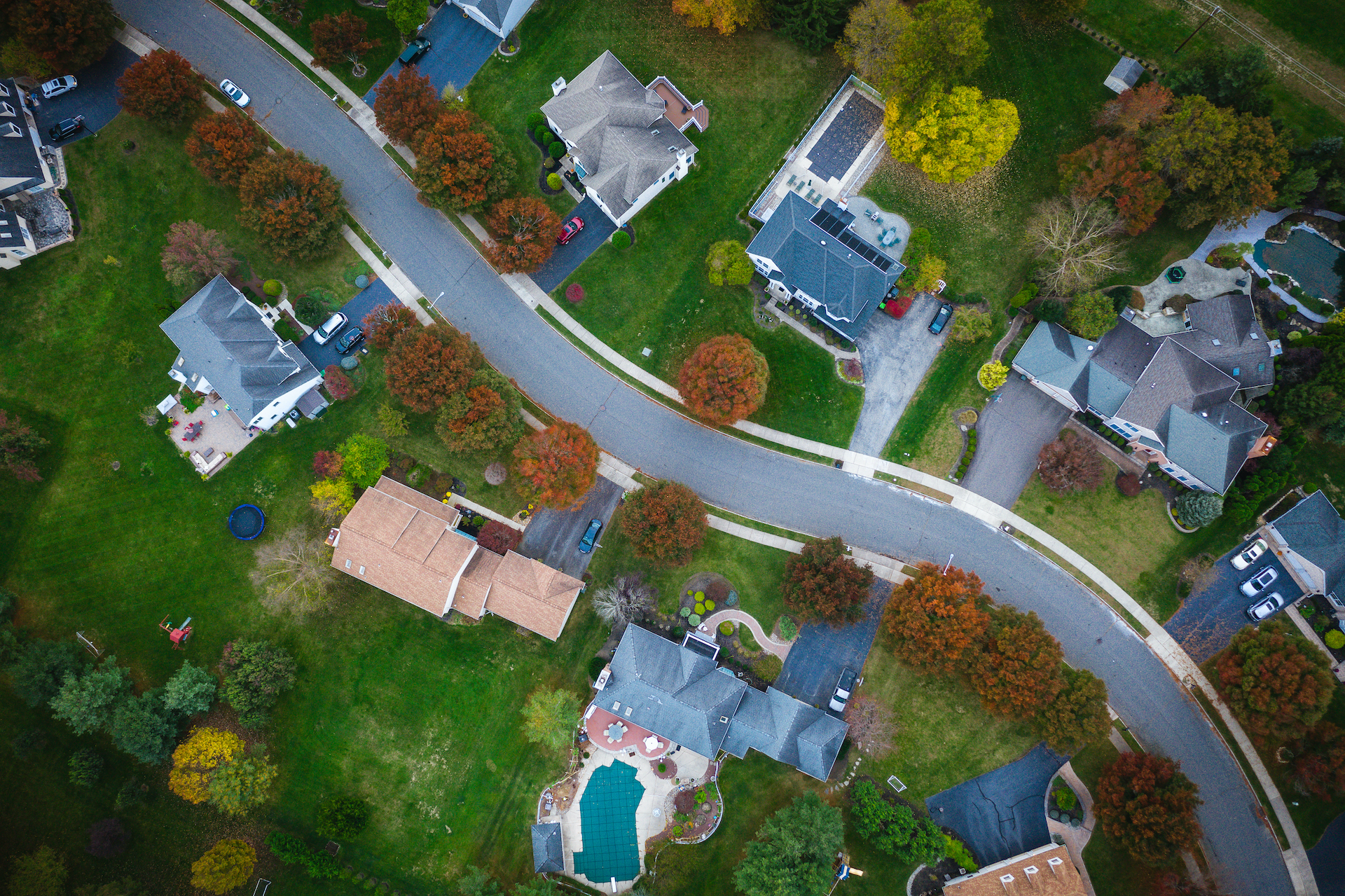Will solar panels increase my home’s value?
With the average person owning a home for seven to eight years and warranties on home solar systems at 25 years, many homeowners who purchase a home solar system are likely to sell their home at some point during the system’s lifetime. So it’s natural for homeowners to wonder whether a home solar system will increase their home’s value.
Payback periods (how long a home solar system will take to pay for itself) vary widely from as low as five years to as high as 20 or more years. Homeowners who sell their homes before the system has paid for itself or who haven’t finished paying off their lease or loan rely on the premium they can get for their home solar system to at least recoup their initial investment.
Here’s a simplified example of a home sold six years after a home solar purchase:
- Initial investment in home solar –$24,000
- Annual energy savings of $3,000 x 6 years +$18,000
- Home solar investment deficit -$6,000
In this example, a homeowner would need their home solar system to increase their home’s value by $6,000 to break even on their investment.
So then the question is: How much would installing home solar increase the value of my home?
Will solar panels increase my home’s value?
With the average person owning a home for seven to eight years and warranties on home solar systems at 25 years, many homeowners who purchase a home solar system are likely to sell their home at some point during the system’s lifetime. So it’s natural for homeowners to wonder whether a home solar system will increase their home’s value.
Payback periods (how long a home solar system will take to pay for itself) vary widely from as low as five years to as high as 20 or more years. Homeowners who sell their homes before the system has paid for itself or who haven’t finished paying off their lease or loan rely on the premium they can get for their home solar system to at least recoup their initial investment.
Here’s a simplified example of a home sold six years after a home solar purchase:
- Initial investment in home solar –$24,000
- Annual energy savings of $3,000 x 6 years +$18,000
- Home solar investment deficit -$6,000
In this example, a homeowner would need their home solar system to increase their home’s value by $6,000 to break even on their investment.
So then the question is: How much would installing home solar increase the value of my home?
How much will home solar panels increase my home’s resale value?
Data from Zillow found that, on average, a home solar system will add a 4.1 percent premium to a home’s value. For a $300,000 home that’s a $12,300 premium. In the example above, enough to cover the $6,000 deficit AND provide a $6,300 return on the initial investment!
But before we get too excited, remember that the Zillow study was done nationally and that the value of a home solar system is going to be different in different states and regions due to variations in energy prices, sunlight and consumer preferences. But even within the same region or state, the value will vary for different home solar systems since each home solar system is unique to each individual home and there are many variables which affect the system’s performance and reliability. So we’re sorry to say that we don’t have a simple answer at the moment. But we’ll lay out all of the considerations in the rest of the article.
How much will home solar panels increase my home’s resale value?
Data from Zillow found that, on average, a home solar system will add a 4.1 percent premium to a home’s value. For a $300,000 home that’s a $12,300 premium. In the example above, enough to cover the $6,000 deficit AND provide a $6,300 return on the initial investment!
But before we get too excited, remember that the Zillow study was done nationally and that the value of a home solar system is going to be different in different states and regions due to variations in energy prices, sunlight and consumer preferences. But even within the same region or state, the value will vary for different home solar systems since each home solar system is unique to each individual home and there are many variables which affect the system’s performance and reliability. So we’re sorry to say that we don’t have a simple answer at the moment. But we’ll lay out all of the considerations in the rest of the article.
How properties and improvements are valued
Before we get into the specific factors which will affect the value of a home solar system during a home sale, let’s take a quick detour and review the methods which realtors use to value a property and improvements to that property.
Paired sales or “comps”
This is the most common method which anyone who has bought or sold a home should be familiar with. In this method, properties with similar characteristics which have recently been sold are compared to the subject property. It’s a logical way to value a property assuming similar properties in the area can be found since it uses market value. In other words, if someone else recently paid $X for a similar property, someone would likely pay the same for the subject property.
The cost method
The second method that realtors use is a cost model, though this is more likely used for improvements that are unique to a property and when comparables aren’t available. This method uses the cost of the improvement to the property as the value for it.
The income method
This method is, by definition, reserved for improvements that produce some economic return, like energy efficiency improvements or a home solar system. For example, adding attic insulation will save the homeowner $300 per year in heating and cooling costs. The value of that upgrade will be some multiple of that “income” that the improvement will generate. That multiple can be based on the number of years that a homeowner would realize those savings or the number of years the equipment is expected to operate.
With most energy efficiency improvements, actual savings are not completely clear as they can change with the energy use habits of a particular homeowner. For example, adding insulation is more valuable to a homeowner who sets their thermostat to 70 degrees in the winter as compared to someone who sets their thermostat to 60 degrees. However, home solar is different since homeowner habits do not influence how much electricity that home solar system generates.
While many features of homes have subjective value to prospective buyers (type and color of kitchen countertops, for example), a home solar system and the energy and savings it generates can be objectively valued. As a result, the income method is a viable way of valuing a home solar system and, arguably, the most appropriate.
But before we get into the factors that will affect the value of a specific home solar system, remember in any market, something is only worth what someone will pay for it. So even an objective value for energy savings will be viewed subjectively through the lens of a prospective buyer. For example, a homebuyer with strong environmental concerns will value a home solar system differently than a homebuyer without such concerns.
OK, enough theory – let’s get into the specific factors which will affect the value of a home solar system.
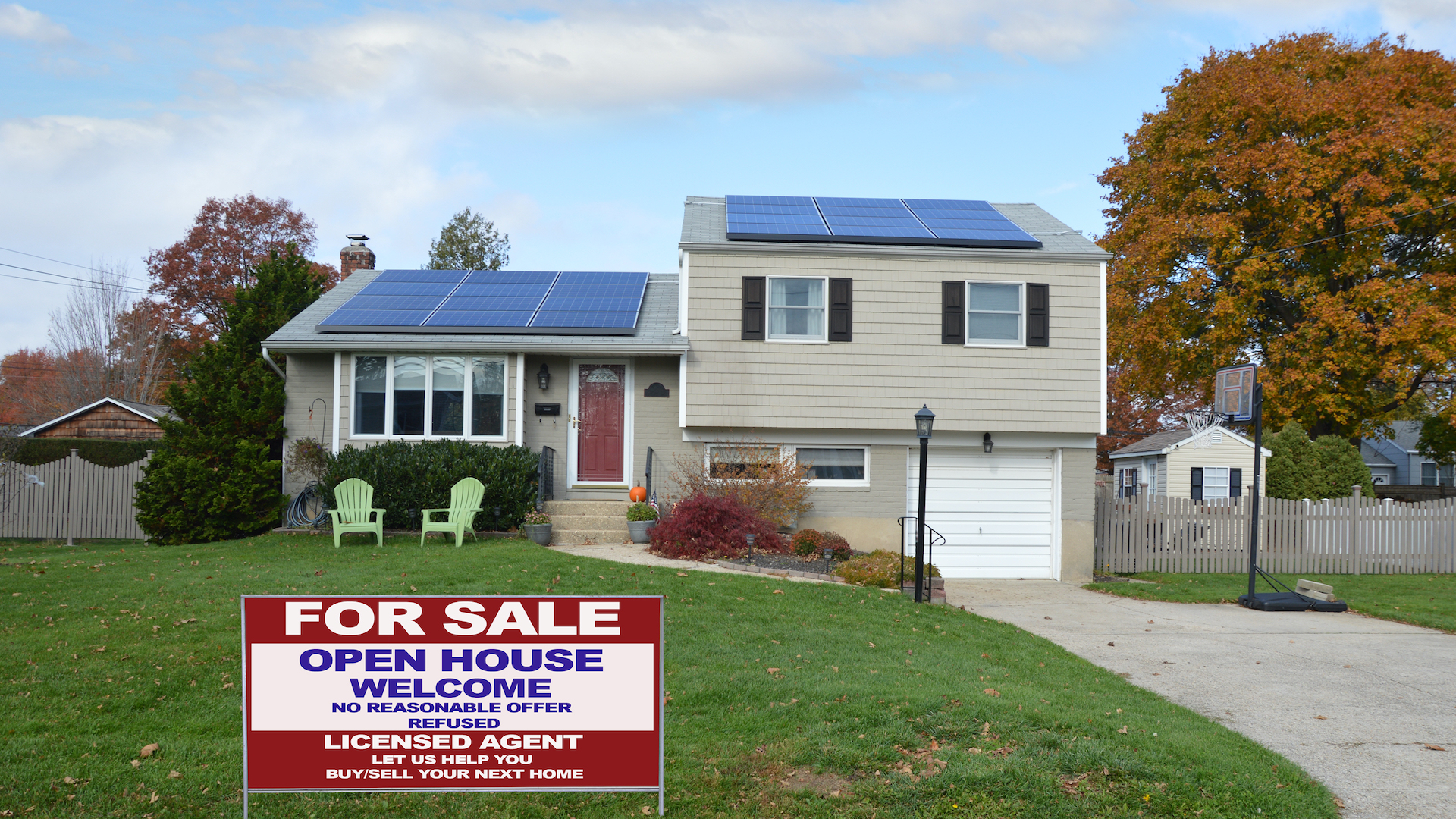
How properties and improvements are valued
Before we get into the specific factors which will affect the value of a home solar system during a home sale, let’s take a quick detour and review the methods which realtors use to value a property and improvements to that property.
Paired sales or “comps”
This is the most common method which anyone who has bought or sold a home should be familiar with. In this method, properties with similar characteristics which have recently been sold are compared to the subject property. It’s a logical way to value a property assuming similar properties in the area can be found since it uses market value. In other words, if someone else recently paid $X for a similar property, someone would likely pay the same for the subject property.
The cost method
The second method that realtors use is a cost model, though this is more likely used for improvements that are unique to a property and when comparables aren’t available. This method uses the cost of the improvement to the property as the value for it.
The income method
This method is, by definition, reserved for improvements that produce some economic return, like energy efficiency improvements or a home solar system. For example, adding attic insulation will save the homeowner $300 per year in heating and cooling costs. The value of that upgrade will be some multiple of that “income” that the improvement will generate. That multiple can be based on the number of years that a homeowner would realize those savings or the number of years the equipment is expected to operate.
With most energy efficiency improvements, actual savings are not completely clear as they can change with the energy use habits of a particular homeowner. For example, adding insulation is more valuable to a homeowner who sets their thermostat to 70 degrees in the winter as compared to someone who sets their thermostat to 60 degrees. However, home solar is different since homeowner habits do not influence how much electricity that home solar system generates.
While many features of homes have subjective value to prospective buyers (type and color of kitchen countertops, for example), a home solar system and the energy and savings it generates can be objectively valued. As a result, the income method is a viable way of valuing a home solar system and, arguably, the most appropriate.
But before we get into the factors that will affect the value of a specific home solar system, remember in any market, something is only worth what someone will pay for it. So even an objective value for energy savings will be viewed subjectively through the lens of a prospective buyer. For example, a homebuyer with strong environmental concerns will value a home solar system differently than a homebuyer without such concerns.
OK, enough theory – let’s get into the specific factors which will affect the value of a home solar system.

What factors will affect the value of my home solar system?
As an income-generating asset, we can use energy and financial modeling to fairly accurately predict how much money home solar will save on a monthly and annual basis over the system’s 25 year lifetime. If you’ve already installed a home solar system, actual data from your home solar system’s performance is even better. Both of these data sources can provide a solid foundation for which to assess the value a home solar system could add to your home. But energy generation and savings are just part of the picture. Here are the rest of the considerations…
Ownership
The most important factor in the value of a home solar system is whether the system homeowner owns the system or it’s owned by a third-party. When a solar system is owned by a third-party and a homeowner has signed a 15-20 year contract to purchase energy from that third-party, the contract either needs to be transferred to the new buyer or bought out by the existing owner. Transferring the contract complicates a home sale as the prospective buyer must agree to take over the contract under its current terms and then must qualify to do so. The simplest thing to do is for the current homeowner to buy out the remaining lifetime of the contract. This way they own the system free and clear and can freely transfer that ownership to any prospective buyer. However, buying out the contract will require the homeowner to come up with a potentially significant lump sum payment.
Solar loans are similar in that the homeowner must either pay off the remaining principal of the loan or transfer the loan to the new buyer.
System size & energy production
Assuming that the current homeowner owns the home solar system, how much energy and savings the system will produce over its expected remaining lifetime is the next most important factor in an income-based method for valuing a home solar system. System size in watts determines how much capacity a home solar system has to generate power. The location of the solar panels and design of the system determines how much energy (power over time) it will actually produce. Solar panels in sunny, unshaded areas facing south will generate the most energy.
If there are incentives that are tied to energy production (SRECs in states like New Jersey, for example), the estimated amount of those future payments should be included in the value of the home solar system.
Expected expenses
Home solar equipment (solar panels and inverters primarily) have become very reliable but no product is bulletproof. While solar panels, microinverters and DC optimizers come with a standard 25 year warranty, some inverters still only have a 10-12 year warranty. Any anticipated costs related to maintenance, repair, or replacement of system components should be subtracted from a home solar system’s income-generating value.
Warranties from the equipment manufacturers as well as the quality reputation and financial strength of the manufacturers themselves are factors in determining a reasonable expense allocation for the remaining lifetime of a home solar system. Warranties from reputable manufacturers who are likely to be in business for the remaining expected lifetime of the system reduce expectations for expenses related to repairing or replacing failed equipment. It’s important to note that most manufacturers’ warranties only cover repairing or replacing the product itself, and so if a manufacturer or installer provides a warranty that also covers labor costs to repair or replace equipment, you can reduce expected expenses.
If the contractor who installed the system provides a warranty on their workmanship, that will also reduce expected expense (if they’re still in business). Even better is a workmanship warranty from a manufacturer who will warrant the workmanship of contractors in their dealer program.
How the home solar system affects curb appeal
The type and aesthetics of a home solar system get into a subjective, gray area in terms of how they affect value. Solar panels installed on the front of a home or in a highly visible location will affect the aesthetics of the house and could turn off prospective buyers. In addition the placement of the solar panels can impact aesthetics. Systems designed which mix portrait and landscape orientations or have solar panels scattered on different parts of the roof won’t look as good as a simple rectangular solar array centered on your roof.
All-black solar panels are very common for home solar systems nowadays, though it wasn’t too long ago that solar panels with blue cells, white backsheets between the cells, and silver frames were being installed on homes. In addition, while all mounting hardware is available in a black finish, some contractors will use silver components which are cheaper. Finally, the placement of wiring and conduit from the solar array to the inverter can influence aesthetics. Conduit running across your roof won’t look as good as conduit which runs through your attic inside your home. All of these aesthetic factors can be a turnoff to prospective buyer.
Solar roofing, with a lower profile and better aesthetics may appeal more to a prospective buyer and fetch a higher premium than a traditional solar panel system.
What factors will affect the value of my home solar system?
As an income-generating asset, we can use energy and financial modeling to fairly accurately predict how much money home solar will save on a monthly and annual basis over the system’s 25 year lifetime. If you’ve already installed a home solar system, actual data from your home solar system’s performance is even better. Both of these data sources can provide a solid foundation for which to assess the value a home solar system could add to your home. But energy generation and savings are just part of the picture. Here are the rest of the considerations…
Ownership
The most important factor in the value of a home solar system is whether the system homeowner owns the system or it’s owned by a third-party. When a solar system is owned by a third-party and a homeowner has signed a 15-20 year contract to purchase energy from that third-party, the contract either needs to be transferred to the new buyer or bought out by the existing owner. Transferring the contract complicates a home sale as the prospective buyer must agree to take over the contract under its current terms and then must qualify to do so. The simplest thing to do is for the current homeowner to buy out the remaining lifetime of the contract. This way they own the system free and clear and can freely transfer that ownership to any prospective buyer. However, buying out the contract will require the homeowner to come up with a potentially significant lump sum payment.
Solar loans are similar in that the homeowner must either pay off the remaining principal of the loan or transfer the loan to the new buyer.
System size & energy production
Assuming that the current homeowner owns the home solar system, how much energy and savings the system will produce over its expected remaining lifetime is the next most important factor in an income-based method for valuing a home solar system. System size in watts determines how much capacity a home solar system has to generate power. The location of the solar panels and design of the system determines how much energy (power over time) it will actually produce. Solar panels in sunny, unshaded areas facing south will generate the most energy.
If there are incentives that are tied to energy production (SRECs in states like New Jersey, for example), the estimated amount of those future payments should be included in the value of the home solar system.
Expected expenses
Home solar equipment (solar panels and inverters primarily) have become very reliable but no product is bulletproof. While solar panels, microinverters and DC optimizers come with a standard 25 year warranty, some inverters still only have a 10-12 year warranty. Any anticipated costs related to maintenance, repair, or replacement of system components should be subtracted from a home solar system’s income-generating value.
Warranties from the equipment manufacturers as well as the quality reputation and financial strength of the manufacturers themselves are factors in determining a reasonable expense allocation for the remaining lifetime of a home solar system. Warranties from reputable manufacturers who are likely to be in business for the remaining expected lifetime of the system reduce expectations for expenses related to repairing or replacing failed equipment. It’s important to note that most manufacturers’ warranties only cover repairing or replacing the product itself, and so if a manufacturer or installer provides a warranty that also covers labor costs to repair or replace equipment, you can reduce expected expenses.
If the contractor who installed the system provides a warranty on their workmanship, that will also reduce expected expense (if they’re still in business). Even better is a workmanship warranty from a manufacturer who will warrant the workmanship of contractors in their dealer program.
How the home solar system affects curb appeal
The type and aesthetics of a home solar system get into a subjective, gray area in terms of how they affect value. Solar panels installed on the front of a home or in a highly visible location will affect the aesthetics of the house and could turn off prospective buyers. In addition the placement of the solar panels can impact aesthetics. Systems designed which mix portrait and landscape orientations or have solar panels scattered on different parts of the roof won’t look as good as a simple rectangular solar array centered on your roof.
All-black solar panels are very common for home solar systems nowadays, though it wasn’t too long ago that solar panels with blue cells, white backsheets between the cells, and silver frames were being installed on homes. In addition, while all mounting hardware is available in a black finish, some contractors will use silver components which are cheaper. Finally, the placement of wiring and conduit from the solar array to the inverter can influence aesthetics. Conduit running across your roof won’t look as good as conduit which runs through your attic inside your home. All of these aesthetic factors can be a turnoff to prospective buyer.
Solar roofing, with a lower profile and better aesthetics may appeal more to a prospective buyer and fetch a higher premium than a traditional solar panel system.
What’s the bottom line?
The bottom line is that a home solar system will increase your home value. But there currently isn’t any standardized and generally accepted method of valuing a home solar system. A logical and reasonable way to assign a value to a home solar system is the income method. The income method calculates the income that the home solar system will generate over its remaining expected lifetime, less any anticipated expenses.
In the real world, the actual premium you’ll get will be a combination of things you can control and things you can not. You can’t control a prospective buyer’s preference for home solar, but it’s essential to carefully consider the factors you can control.
These factors include:
- Whether you own the system or you enter into a contract with a third-party owner
- How well the system is designed and thus how efficiently it generates energy
- How uniform the placement of the solar panels is within your roof space
- The type, color and quality of the equipment, including warranties from the manufacturer
- The quality of the solar contractor, including any warranties they offer
What’s the bottom line?
The bottom line is that a home solar system will increase your home value. But there currently isn’t any standardized and generally accepted method of valuing a home solar system. A logical and reasonable way to assign a value to a home solar system is the income method. The income method calculates the income that the home solar system will generate over its remaining expected lifetime, less any anticipated expenses.
In the real world, the actual premium you’ll get will be a combination of things you can control and things you can not. You can’t control a prospective buyer’s preference for home solar, but it’s essential to carefully consider the factors you can control.
These factors include:
- Whether you own the system or you enter into a contract with a third-party owner
- How well the system is designed and thus how efficiently it generates energy
- How uniform the placement of the solar panels is within your roof space
- The type, color and quality of the equipment, including warranties from the manufacturer
- The quality of the solar contractor, including any warranties they offer
Curious about how value home solar may add to your home? We provide honest and accurate estimates of future energy generation, savings and incentives and when we design systems for homeowners, we consider the aesthetics of the system on your roof while only specifying all-black solar panels and hardware.
Learn more about our process here or get started with a free Solar Assessment.
Curious about how value home solar may add to your home? We provide honest and accurate estimates of future energy generation, savings and incentives and when we design systems for homeowners, we consider the aesthetics of the system on your roof while only specifying all-black solar panels and hardware.
Learn more about our process here or get started with a free Solar Assessment.
Have a question about the value of home solar or anything else? Send us a message and we’ll answer ASAP.
Have a question about the value of home solar or anything else? Send us a message and we’ll answer ASAP.
Learn about solar
Find honest answers to some of the most commonly asked questions on home solar and clean energy.
Learn about solar
Find honest answers to some of the most commonly asked questions on home solar below.



